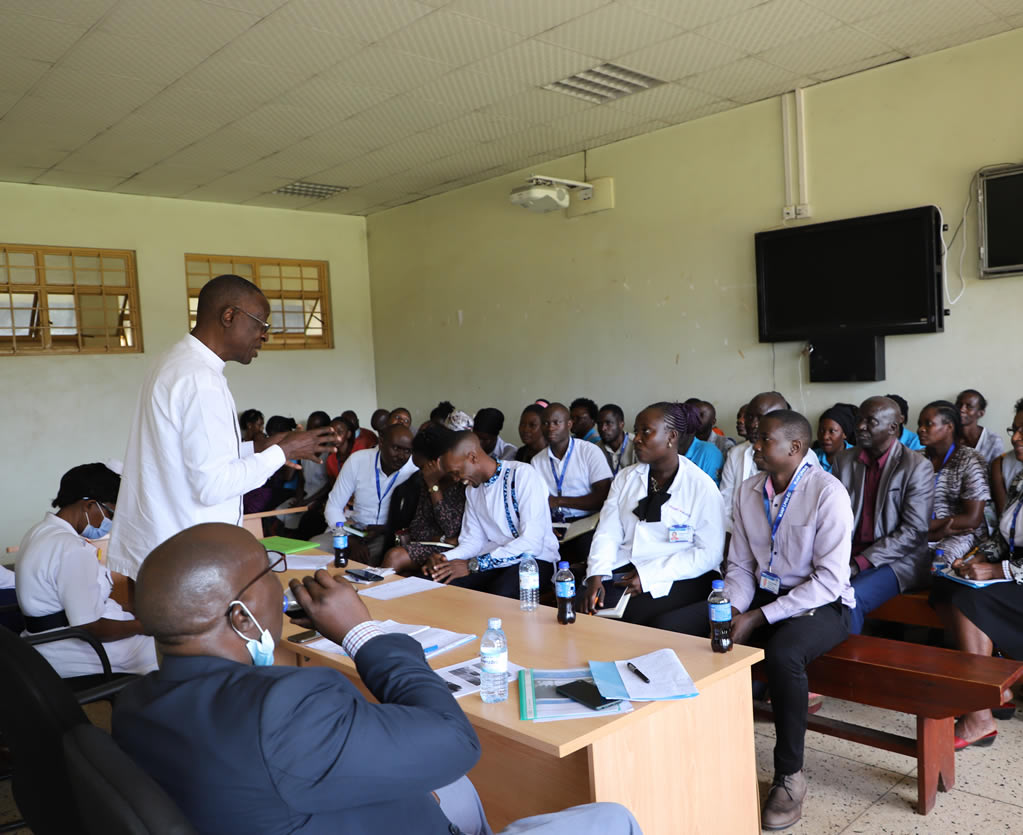CAYLHIV are brought together and taken through collective sessions before each is counseled individually with their caregivers
Mariam, a 13-year-old, was diagnosed with HIV at the age of 5 years. Her childhood was very difficult, often falling sick and in the care of an elderly grandmother who knew little about HIV. Getting her viral load suppressed was a concerted effort between the staff at Mayuge Health Center IV and her grandmother. They all wanted to see Mariam live a healthier life. Today her viral load is suppressed, and she is enrolled on the Multi Month Drug (MMD) dispensing program.
In 2016, the World Health Organization recommended multi-month dispensing (MMD) of antiretroviral therapy (ART) i.e., ≥ 3 months ART refills for stable people living with HIV (PLHIV) in care. MMD has been associated with decongesting ART clinics, improving client satisfaction, reducing health-worker workloads and cost savings. With the introduction of MMD dispensing, a person living with HIV can access antiretroviral drugs (ARVs) for up to 6 months without the need for a clinical review if he/she does not fall sick in-between.
However, only those who have their viral loads suppressed (below 1000 copies/ml), no adherence issues and opportunistic infections are eligible for this MMD dispensing service. Although MMD dispensing was introduced to reduce patient treatment interruptions/loss from care and enhance treatment continuity, it gained more importance and popularity as a way to mitigate the impact of movement restrictions during the COVID-19 outbreak containment.
It is now seen as a cornerstone to deepen implementation of HIV/TB differentiated services delivery models (DSD) in Uganda and other high HIV burden countries to reduce frequent and high transport costs to health facilities, promote patient continuity on treatment and thus facilitate and sustain good patient treatment outcomes including viral load suppression. Differentiated service delivery (DSD) is a person-centered approach to HIV service delivery, where services are tailored to meet the needs of each individual as opposed to giving everyone the same services.
To improve treatment outcomes for CALHIVs the Uganda Ministry of health has since revised national guidelines and now recommends DSDMs of family-based care for children >2 years of age and adolescents to enhance continuity of treatment, adherence, and viral suppression for caregiver-child units. This includes multi-month dispensing (MMD) of 3 to 6-months of ART to clinically stable children and adolescents > 2 years of age and their caregivers as per national guidelines and will work with MoH to train and sensitize providers on the new guidelines.
This recommendations has been taken up and USAID Local Partner Health Services East Central /MJAP with above site support from USAID Regional Health Integration for Enhanced Delivery (RHITES EC) have provided facility level mentorship and regular performance tracking and coordination for ART supplies for the scale-up MMD for eligible CALHIVs in East Central Uganda. “When we are certain that the child and guardian know the importance of taking ARVs, especially drug adherence, then we start dispensing drugs that can last up to 6 months” says Joel Kasakaire, a clinician at Mayuge Health Centre IV. Across the region, percentage of the targeted population of Children and Youths Living with HIV (CAYLHIV) receiving MMD dispensing now stands at 66% by December 2021.
At Mayuge Health Centre IV where Mariam gets her care and treatment from, the facility has embraced MMD dispensing to over 95% (70) of all eligible CALHIVs (See Figure 1) by September 2021 . MMD has given CALHIVs a new lease of life and a greater chance of continuing on treatment and living healthier and more productive lives. “When we are certain that the child and its guardian know the importance of taking ARVs, especially drug adherence, then we start dispensing drugs that can last up to 6 months” says Joel Kasakaire, a clinician at Mayuge Health Centre IV.

